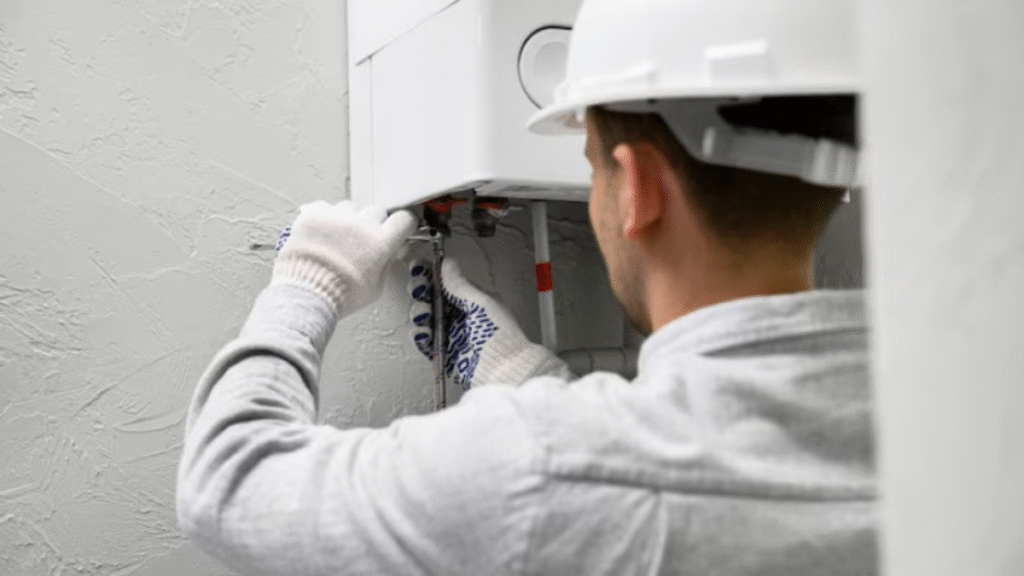Hot water plays a central role in everyday routines, and when a water heater starts to fail, the impact becomes noticeable almost immediately. Showers may lose their warmth, appliances may run less efficiently, and water temperatures may fluctuate without warning. While minor issues can sometimes be repaired, continued performance problems often point to deeper concerns. Understanding when a Water Heater Replacement is necessary helps homeowners avoid unexpected breakdowns and maintain a comfortable, efficient home.
Many homeowners are unsure how to recognize the early symptoms of a failing water heater. Because water heaters are tucked away in basements, closets, or utility rooms, problems may go unnoticed until they cause major inconvenience. Small leaks, rust-colored water, or increasing energy bills often indicate that the system is struggling. Delaying action can lead to larger issues such as water damage or complete system failure.
To help homeowners make informed decisions, Benjamin Franklin Plumbing provides expert guidance throughout the replacement process. Their team ensures that each Water Heater Replacement is completed safely, efficiently, and with long-term performance in mind. By recognizing the signs and preparing properly, homeowners can enjoy reliable hot water and improved comfort.
Recognizing Early Signs of Water Heater Failure
One of the clearest signs that replacement may be necessary is inconsistent water temperature. When the system can no longer heat water effectively, the home experiences frequent hot-cold fluctuations. Strange noises such as popping or rumbling are often caused by sediment buildup at the bottom of the tank, which reduces efficiency and strains the system.
Visible leaks around the tank or moisture on the floor are important warnings. These issues may indicate that the tank has weakened due to corrosion. Rust-colored or cloudy water also signals internal deterioration, which suggests that a Water Heater Replacement is the safest solution.
Considering the Age of the System
Most water heaters last between eight and twelve years, depending on usage, maintenance, and type of unit. When a system approaches or exceeds this age range, replacement is often more cost-effective than continuing repairs. Older units struggle to operate efficiently and may require frequent service. Relying on an aging system increases the risk of sudden failure.
Knowing the age of the current water heater helps homeowners determine whether replacement is a smart long-term investment.
Evaluating Energy Costs and Efficiency
A sudden increase in energy bills may reflect declining performance. As water heaters age, they become less efficient and require more power to heat water. This extra energy consumption can be noticeable even when usage habits remain the same. Upgrading to a newer, more efficient system helps reduce monthly utility costs.
Benjamin Franklin Plumbing evaluates efficiency concerns and recommends systems designed to minimize energy use and provide consistent performance.
Preparing the Home for a Replacement
Before the replacement process begins, homeowners should prepare the area around the water heater. Clearing obstacles, removing stored items, and ensuring easy access allows installers to work efficiently. Shut-off valves and electrical connections should also be accessible.
Proper preparation helps the installation team complete the replacement more quickly and ensures a smooth transition from the old system to the new one.
Choosing the Right Replacement Unit
Selecting an appropriate unit is essential for long-term satisfaction. Tank-style water heaters come in various sizes to meet different household needs. Tankless systems provide on-demand hot water and offer significant energy-saving benefits. Hybrid and high-efficiency models combine modern technology with reduced operating costs.
Professionals help homeowners determine the best option by evaluating factors such as household size, daily usage patterns, available space, and energy preferences.
Removing the Old Water Heater Safely
The removal process involves several important steps, including disconnecting power or fuel sources, draining the tank, and detaching water lines. Improper handling can result in leaks, electrical hazards, or property damage. Experienced technicians follow precise procedures to ensure safe removal and proper disposal of the old unit.
Benjamin Franklin Plumbing manages this step with care, ensuring that the area is prepared for the new installation.
Installing the New System With Accuracy
A successful Water Heater Replacement requires precise installation of water lines, pressure relief valves, and temperature controls. Proper placement ensures the system operates efficiently and safely. For gas models, venting and combustion safeguards must be installed correctly. For electric models, wiring must be handled with care to prevent hazards.
Installers secure all components and verify that the system meets building codes and manufacturer requirements.
Testing Performance and Adjusting Settings
Once the new unit is installed, the system must be tested for leaks, pressure consistency, and proper heating levels. Professionals adjust thermostat settings to ensure safe and efficient operation. This testing process confirms that the new water heater is functioning correctly and that all connections are secure.
Benjamin Franklin Plumbing performs thorough checks to ensure that homeowners receive reliable performance from day one.
Maintaining the New System for Long-Term Performance
Regular maintenance extends the life of the new water heater. Flushing the tank, inspecting the anode rod, and checking pressure valves help maintain performance and prevent early deterioration. Tankless systems also benefit from periodic cleaning to prevent mineral buildup.
Professional maintenance recommendations help homeowners protect their investment and enjoy reliable hot water for many years.
Long-Term Benefits of Replacing an Aging Water Heater
Replacing a failing water heater offers lasting benefits, including improved energy efficiency, consistent hot water, and reduced repair costs. With expert support from Benjamin Franklin Plumbing and a careful Water Heater Replacement process, homeowners experience enhanced comfort, better reliability, and increased peace of mind. A new system provides the dependable performance families need for daily routines, supporting long-term home satisfaction.







